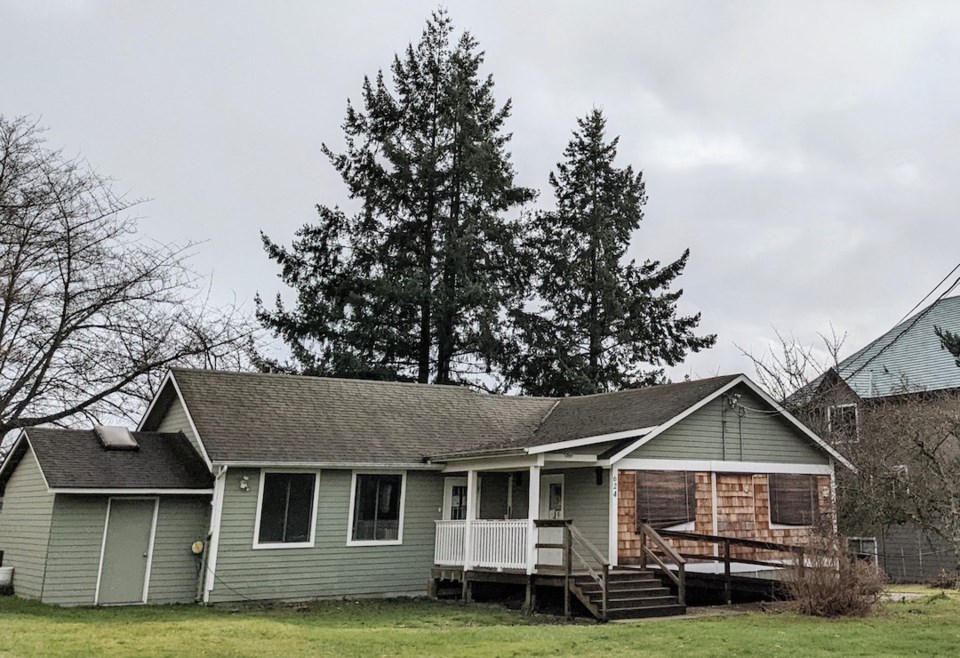Not unlike the life adjustments they hope to help future clientele face, the Coastal Recovery Centre (CRC) says it has been forced to adapt plans for its first Coast facility to a day use model. The obstacles faced in readying its proposed location of 624 Farnham Road in Gibsons as a residential treatment site were too extensive, according to group spokesperson TJ Sheehan.
In a Jan. 26 interview, Sheehan said they will be applying for a Town business licence to conduct counselling programs from that location. These are to include services focusing on youth as well as adults of all genders. They will range from addictions recovery counselling to programs aimed at anti-bullying and support for victims of domestic violence.
Gibsons’ director of planning Lesley-Anne Staats said in an email on Feb. 2 that no business licence application for 624 Farnham has been received. “The property is zoned commercial, which would allow a counselling office. As part of the business licensing review process, the application is referred to the building department to make sure the building is suitable for the use, and to the planning department to confirm the proposal meets zoning requirements,” Staats wrote.
CRC had to back away from its original plans after the Town asked it to obtain a temporary use permit to allow a four-bed residential treatment facility on that commercially zoned property. That request was made after a CRC delegation appeared at a Jan. 19 Town committee meeting. During that event, the need for the structure to meet current building code requirements for residential use, including fire suppression, mechanical ventilation, seismic and structural improvements was raised.
“Basically, they were setting us up for failure. There would be no way that we would be eligible to comply with what they were asking, financially or time wise. It’s $1,500 to apply (for the temporary use permit) and Gibsons does not have a building inspector right now and they have given us no timeframe on when a building inspector can come in,” Sheehan said.
He estimated that the mandated building renovation costs for residential use could have run as high as $100,000. With current supply chain and construction sector labour shortages, he said that upgrades would also delay any facility opening by at least six months.
“If we had been given information about the building needs by staff back in September, we would not have invested the time and money in planning for the residential facility but would have pivoted to a day use facility a lot sooner. We could have been open by now.”
Commenting on those earlier discussions with the group, Staats noted that the Town did not receive any formal application from CRC and that staff considered those as “pre-application conversations.”
“The initial proposal was for a ‘licenced community care facility’ – which had its set of requirements, however, then the proposal changed to a ‘licensed assisted living facility’ which had a different set of requirements. It was confusing navigating the legislation and regulations as the proposal changed and new information trickled in over time,” Staats wrote.
While disappointed that five months of efforts through Town staff did not make a residential addictions treatment facility a reality, Sheehan says CRC is ready to launch that service if a suitable location can be found. “We have our licence basically accepted from the assisted living facility registry. If we can get someone to graciously allow us to have a house somewhere that works, we have all the documentation and paperwork ready. All of the hard work has been done. It is just a matter of finding a place to do it.”
CRC will also be pivoting on its organizational form. While it had planned to become a benefit corporation, Sheehan said, “we are now going to look at becoming a non-profit. So far we have funded this work out of our own pockets.”
Sheehan asks that those interested in helping the CRC, particularly anyone with a residential property available that may be suitable for a live-in treatment centre, contact him at [email protected].



